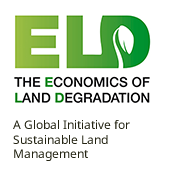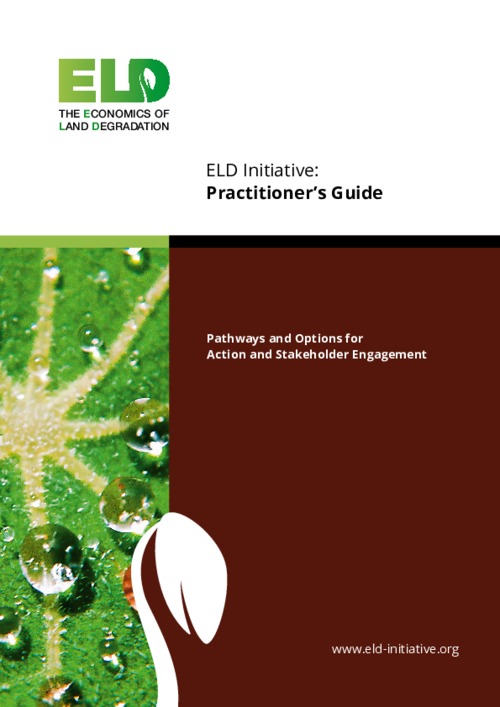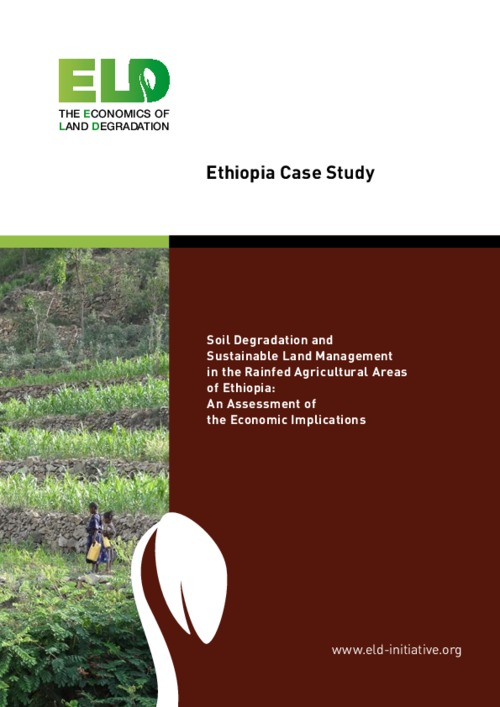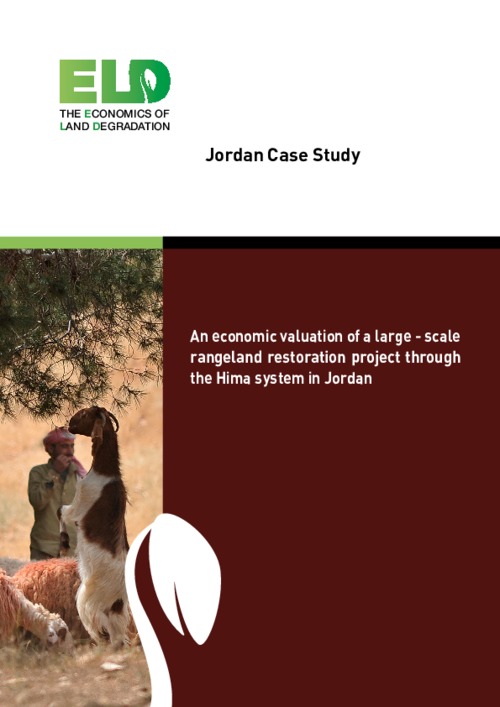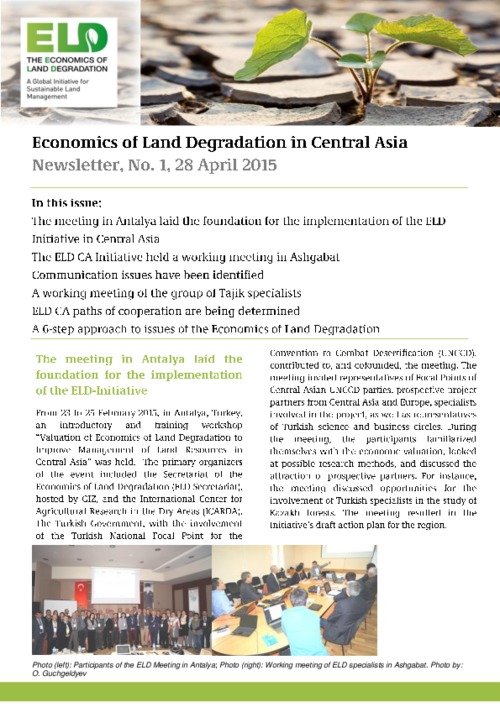Location
The Economics of Land Degradation (ELD) Initiative is an initiative on the economic benefits of land and land based ecosystems. The initiative highlights the value of sustainable land management and provides a global approach for analysis of the economics of land degradation. It aims to make economics of land degradation an integral part of policy strategies and decision making by increasing the political and public awareness of the costs and benefits of land and land-based ecosystems.
Our Vision
The partners’ vision of Economics of Land Degradation (ELD) Initiative is to transform global understanding of the value of land and create awareness of the economic case for sustainable land management that prevents loss of natural capital, secures livelihoods, preserves ecosystem services, combats climate change, and addresses food, energy, and water security, and to create capacity for the utilisation of economic information for sustainable land management.
Mission Statement
The central purpose and role of the Economics of Land Degradation (ELD) Initiative is that through an open inter-disciplinary partnership:
-
We work on the basis of a holistic framework built upon a recognized methodology to include the economic benefits of sustainable land management in political decision-making;
-
We build a compelling economic case for the benefits derived from sustainable land management from the local to the global level while applying a multi-level approach;
-
We estimate quantitatively the economic benefits derived from adopting sustainable land management practices and compare them to the costs of these practices;
-
We develop the capacities of decision-makers and land users through innovative formats to adapt and build their knowledge into national frameworks and action on the ground;
-
We stimulate the transformation towards land uses that provide fulfilling and secure livelihoods to all while growing natural capital, enhancing ecosystem services, boosting resilience and combating climate change;
-
We increase the awareness of the total value of land with its related ecosystem services;
-
We mainstream the full benefits of land in international and national land use strategies and action programmes by proposing effective solutions, tailored to country- or region-specific needs, including policies, and activities to reduce land degradation, mitigate climate change and the loss of biodiversity, and deliver food, energy, and water security worldwide.
Members:
Resources
Displaying 6 - 10 of 14An Economic Valuation of agroforestry and land restoration in the Kelka forest in Mali_Assessing the socio-economic and environmental dimensions of land degradation
The Kelka forest in the Mopti region of Mali is important for the provision of ecosystem services like carbon sequestration and maintenance of the hydrological cycle. The Kelka forest area occupies more than 300, 000 hectares with 15
villages within and around its boundaries. The forest resources and soil fertility of the forest are in continuous decline due to a combination of climatic and human induced factors. For example, the availability of firewood has halved
ELD Initiative: Practitioner’s Guide_Pathways and Options for Action and Stakeholder Engagement
As the world’s population continues to rise, there is
an ever increasing demand for our land to produce
a diverse range of products such as food, timber,
and fuel. Our growing need for these goods is
leading to higher levels of competition between
different land uses and, as a result, land users. Not
only is the quantity of land available for production
under current technical and economic conditions
limited, but there is also growing evidence that the
quality of our land is degrading (Safriel, U. N. 2007;
Ethiopia Case Study_ Soil Degradation and Sustainable Land Management in the Rainfed Agricultural Areas of Ethiopia: An Assessment of the Economic Implications
Soil erosion and deposition values were estimated using pixel based landscape information and the Unit Stream Power Erosion Deposition (USPED) model, which works with the Universal Soil Loss Equation (USLE) parameters. The USPED model was adapted to Ethiopian conditions based on evidence from the Soil Conservation Research Programme, and calibrated and validated using data from former research stations as well as the Abbay (Blue Nile) Basin. Additionally, some of the USLE parameters were reduced in order to achieve a satisfactory approximation of sediment loss for the Abbay Basin.
Jordan Case Study An economic valuation of a large - scale rangeland restoration project through the Hima system in Jordan
Jordanian rangelands are a source of valued livestock produce, carbon storage, biodiversity, and medicinal plants. They also serve as watersheds that receive rainfall, yield surface water, and replenish groundwater throughout the area east and south of the western Jordan highlands. Appropriate land management, which is currently lacking, can protect and maximize these services for society. With the acceleration of desertification, land degradation and drought during the twenty-first century in the arid and semi-arid regions of Jordan, these services are becoming jeopardized.
Economic of Land Degradation on Central Asia_Newsletter #1, 28 Apr 2015
In this issue: the meeting in Antalya laid the foundation for the implementation of the ELD Initiative in Central Asia. The ELD CA Initiative held a working meeting in Ashgabat. Communication issues have been identified. A working meeting of the group of Tajik specialists. ELD CA paths of cooperation are being determined. A 6-step approach to issues of the Economics of Land Degradation.

